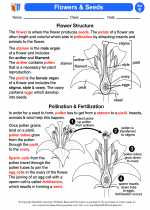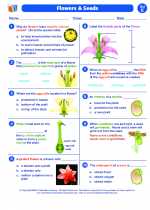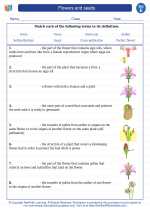Fungi
Fungi are a diverse group of organisms that includes mushrooms, yeasts, molds, and more. They play important roles in the environment, in medicine, and in food production.
Characteristics of Fungi
- Cellular Structure: Fungi are eukaryotic organisms, meaning their cells have a true nucleus and other membrane-bound organelles.
- Nutrition: Fungi are heterotrophs, meaning they obtain their nutrients by absorbing organic compounds from their environment.
- Reproduction: Fungi can reproduce both sexually and asexually. They produce spores that can be dispersed to new locations.
- Ecological Importance: Fungi play important roles in the decomposition of organic matter, nutrient cycling, and forming symbiotic relationships with plants.
- Economic Importance: Fungi are used in the production of various foods and beverages, such as bread, beer, and cheese. They are also a source of antibiotics and other pharmaceuticals.
Types of Fungi
Fungi can be classified into several major groups:
- Yeast: Single-celled fungi that are used in baking and brewing.
- Mold: Multicellular fungi that often form fuzzy growth on food and other surfaces.
- Mushrooms: The reproductive structures of certain fungi that are used as food.
- Lichens: Symbiotic associations between fungi and algae or cyanobacteria.
Study Guide
Here are some key points to help you study fungi:
- Describe the cellular structure of fungi and how it differs from prokaryotic organisms.
- Explain the nutritional mode of fungi and give examples of how they obtain their food.
- Compare and contrast sexual and asexual reproduction in fungi.
- Discuss the ecological importance of fungi in nutrient cycling and symbiotic relationships.
- Give examples of how fungi are used in food production and medicine.
- Identify and describe the different types of fungi, including yeast, mold, mushrooms, and lichens.
Remember to review the characteristics and types of fungi, as well as their ecological and economic importance. Understanding these concepts will help you grasp the significance of fungi in the natural world and in human society.
[Fungi] Related Worksheets and Study Guides:
.◂Science Worksheets and Study Guides Fifth Grade. Flowers and seeds
Study Guide Flowers and seeds
Flowers and seeds  Activity Lesson
Activity Lesson Flowers & Seeds
Flowers & Seeds  Worksheet/Answer key
Worksheet/Answer key Flowers and seeds
Flowers and seeds  Worksheet/Answer key
Worksheet/Answer key Flowers and seeds
Flowers and seeds  Worksheet/Answer key
Worksheet/Answer key Flowers and seeds
Flowers and seeds  Worksheet/Answer key
Worksheet/Answer key Flowers and seeds
Flowers and seeds  Vocabulary/Answer key
Vocabulary/Answer key Flowers and seeds
Flowers and seeds  Vocabulary/Answer key
Vocabulary/Answer key Flowers and seeds
Flowers and seeds 

 Activity Lesson
Activity Lesson
 Worksheet/Answer key
Worksheet/Answer key
 Worksheet/Answer key
Worksheet/Answer key
 Worksheet/Answer key
Worksheet/Answer key
 Worksheet/Answer key
Worksheet/Answer key
 Vocabulary/Answer key
Vocabulary/Answer key
 Vocabulary/Answer key
Vocabulary/Answer key

The resources above cover the following skills:
Life Science
All organisms have structures and systems with separate functions. Students can:
Develop and communicate an evidence-based scientific explanation of the role of different organs or structures that are important for an organism's survival - in both plants and animals